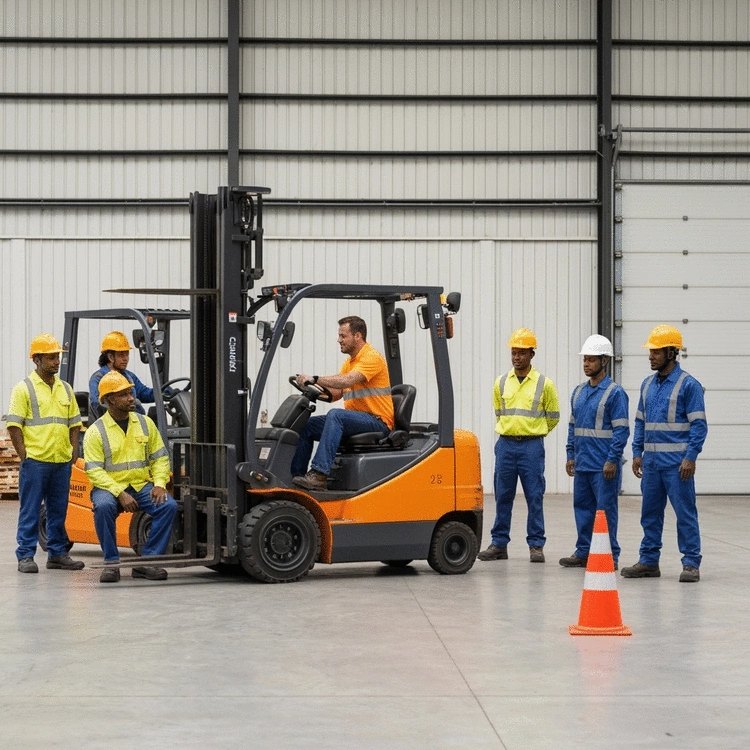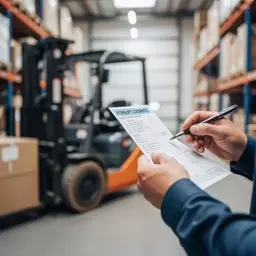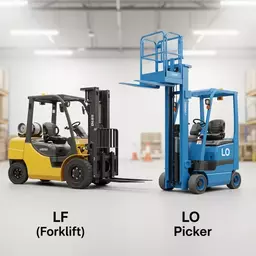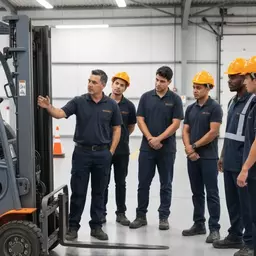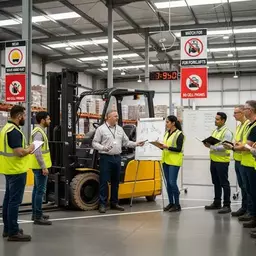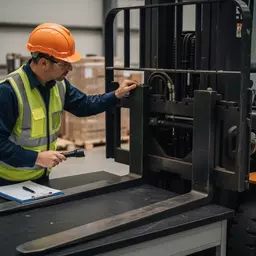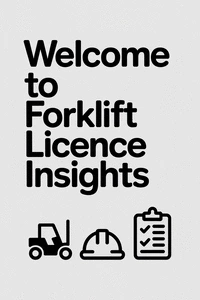Have you ever considered how crucial proper training is in ensuring the safe operation of heavy machinery? Forklift certification isn't just a legal requirement; it's a vital component of workplace safety that can significantly reduce accidents and improve operational efficiency.
What You Will Learn
- Forklift certification enhances workplace safety by reducing the likelihood of accidents and injuries.
- Completion of an accredited training course is essential for obtaining a valid forklift license in Australia.
- Understanding safety regulations and compliance standards is crucial for both operators and employers.
- Choosing a reputable Registered Training Organisation (RTO) is key to receiving quality forklift training.
- Certification not only boosts employability but also demonstrates a commitment to safety compliance.
The Journey to Forklift License: Key Steps & Benefits
This visual outlines the crucial steps and significant benefits associated with obtaining forklift certification in Australia.
Forklift License Acquisition Process
Enroll in RTO Training
Pass Theory & Practical Assessment
Receive Forklift License
Ongoing Safety Compliance
Key Benefits of Certification
Enhances Workplace Safety
Boosts Employability & Career
Ensures Legal Compliance
Increases Operator Confidence
Understanding Certified Forklift Safety Training and Licensing in Australia
When it comes to operating a forklift safely, certification is not just a requirement; it’s a critical component of workplace safety. As someone deeply embedded in the forklift training industry, I’ve seen firsthand how vital it is for operators to be knowledgeable about safety protocols. Certified forklift safety training helps ensure that operators are well-prepared for the responsibilities of handling heavy machinery responsibly and effectively.
Think of forklift certification as a badge of honor! It signifies that you have met rigorous training standards, which not only enhances your skills but also fosters a safer work environment. Employers value certified operators, as they know these individuals are trained to handle potential hazards that can arise while operating forklifts.
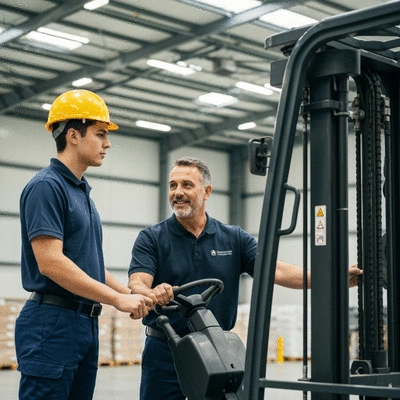
The Importance of Forklift Certification for Safety Compliance
Obtaining a forklift certification isn’t just about checking a box; it demonstrates a commitment to workplace safety. In Australia, safety compliance is paramount, and certified operators significantly reduce the risk of accidents. When operators are trained correctly, they contribute to fewer workplace injuries and incidents, which can save businesses substantial costs in the long run.
- Improved workplace safety standards
- Decreased likelihood of accidents and injuries
- Enhanced operator confidence and efficiency
Moreover, many industries mandate that their operators hold a current forklift license. This compliance not only protects employees but also ensures businesses adhere to legal requirements, which is crucial for maintaining operational integrity. For more details on compliance, consider reviewing the 2025 Australian Forklift Licence Changes.
What is the Forklift License Australia Requirement?
In Australia, the requirements for obtaining a forklift license involve completing a nationally accredited training course through a Registered Training Organisation (RTO). This course includes both theoretical and practical components, equipping you with the skills needed to operate a forklift safely. To be compliant, candidates must pass an assessment, which ultimately leads to the issuance of a forklift license.
- Completion of a training course at an RTO
- Passing a practical and theory assessment
- Meeting any state-specific requirements
Remember, obtaining your forklift license is a journey! It’s essential to research and choose a reputable training provider that aligns with your career goals. The right training can set you up for success in your forklift operating career.
Overview of Forklift Safety Regulations and Compliance Standards
Understanding the safety regulations surrounding forklift operations is crucial for both operators and employers. Australia adheres to strict safety standards set by Safe Work Australia and other regulatory bodies. These guidelines cover everything from operator training to equipment maintenance and workplace safety protocols.
- Safe Work Australia guidelines
- State-specific safety regulations
- Compliance with the Australian Standards (AS) for forklifts
By staying informed about these regulations, operators can ensure they are compliant and contribute to a culture of safety within their workplace. At Forklift Licence Insights, I believe that understanding these standards is the first step toward becoming a proficient and responsible forklift operator!
We Want to Hear From You!
What do you find most challenging about obtaining your forklift license? Share your thoughts below:
Key Takeaways for Finding Forklift Safety Training in Australia
When it comes to finding the right forklift safety training, it’s essential to understand the value of certification and training. These elements are not just formalities; they are crucial for ensuring safety in the workplace and enhancing your employability. With the right training, you can navigate the complexities of forklift operation and comply with safety standards.
Let’s recap the importance of certification: it not only equips you with the necessary skills but also promotes a safety-first mindset. Without proper training, risks increase significantly, both for the operator and those around them. Remember, investing in quality training today can lead to a safer work environment and a more successful career tomorrow!
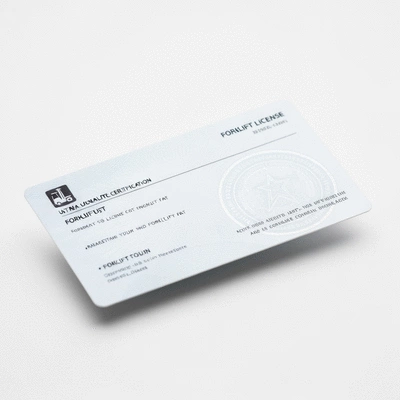
Recap of the Importance of Certification and Training
- **Enhances Safety:** Proper training minimizes accidents in the workplace.
- **Boosts Employability:** Certified operators are often preferred by employers.
- **Meets Legal Requirements:** Certification ensures compliance with national safety standards.
- **Increases Confidence:** Training prepares you for real-world forklift operations.
Each of these points underscores the critical role that certification plays in the forklift industry. As a passionate advocate for forklift safety, I can’t stress enough how vital it is to prioritize reputable training.
Final Thoughts on Choosing the Right Forklift Training Provider
Choosing the right training provider can be overwhelming, but it’s crucial to make an informed decision. Look for providers with strong reputations and positive reviews. Additionally, check that they are Registered Training Organisations (RTOs) to ensure the quality and compliance of the training.
Consider reaching out to each provider for detailed information on their courses, including structure, costs, and available support. A good provider should be willing to answer your questions and guide you through the process. Remember, well-informed choices lead to better outcomes!
Take Action: Enroll in Your Forklift Safety Training Today
Next Steps for Interested Candidates
Ready to take the next step? Here’s a quick action plan for you:
- Research and shortlist certified training providers in your area.
- Contact them to inquire about course offerings and pricing.
- Attend an information session if available, to get a feel for the training environment.
- Enroll in your chosen course and prepare for your learning journey!
Taking these steps will set you on the path to becoming a qualified forklift operator. Each step is vital to ensuring you receive the best training available, especially if you're looking for a comprehensive forklift licence training guide in Australia.
Contact Information for Leading Training Providers
Here are a few resources to help you get in touch with reputable training providers:
- Forklift Training Australia: Visit their website or call their customer service for immediate assistance.
- Local RTOs: Search for RTOs in your state and check their course offerings online.
- Industry Associations: Reach out to associations for referrals to trusted trainers.
Don’t hesitate to contact these providers! They can help answer any questions and guide you on the right training path.
Resources for Ongoing Forklift Safety Training and Compliance
Continued education is key to maintaining safety standards. Here are some valuable resources to stay updated:
- Forklift Licence Insights: Regular blog updates on best practices and safety tips.
- National Safety Council: Access to guidelines and training resources.
- Local Workshops: Join workshops for hands-on experience and networking.
Utilizing these resources can enhance your skills and keep you informed about the latest safety regulations. Staying engaged and proactive about your training and compliance will ensure you remain a competent forklift operator!
Frequently Asked Questions About Forklift Certification in Australia
1. Why is forklift certification crucial for workplace safety?
Forklift certification is vital for workplace safety because it ensures operators are knowledgeable about safety protocols, reducing the likelihood of accidents and injuries. Certified operators are trained to handle potential hazards, contributing to a safer work environment and operational efficiency.
2. What are the main steps to obtaining a forklift license in Australia?
The main steps involve enrolling in a nationally accredited training course through a Registered Training Organisation (RTO), passing both theoretical and practical assessments, receiving your forklift license, and committing to ongoing safety compliance.
3. What are the key benefits of becoming a certified forklift operator?
Key benefits include enhanced workplace safety, increased employability and career opportunities, assurance of legal compliance with Australian regulations, and increased operator confidence in handling machinery responsibly.
4. What role do Registered Training Organisations (RTOs) play in forklift certification?
RTOs are essential as they provide the nationally accredited training courses required to obtain a forklift license in Australia. They deliver both the theoretical knowledge and practical skills necessary for safe forklift operation and conduct the assessments for certification.
5. How do Australian safety regulations impact forklift operators and employers?
Australian safety regulations, set by Safe Work Australia and other regulatory bodies, mandate specific training and compliance standards for forklift operations. These regulations ensure operators are well-trained and that workplaces adhere to safety protocols, thereby protecting employees and maintaining operational integrity.
Recap of Key Points
- Certification is essential for workplace safety and compliance in forklift operation.
- Completing a training course through a Registered Training Organisation (RTO) is mandatory for obtaining a forklift license.
- Understanding safety regulations and compliance standards helps maintain a safe work environment.
- Choosing a reputable training provider can significantly impact your training experience and career opportunities.
- Continued education and staying updated on best practices are crucial for ongoing safety compliance.
